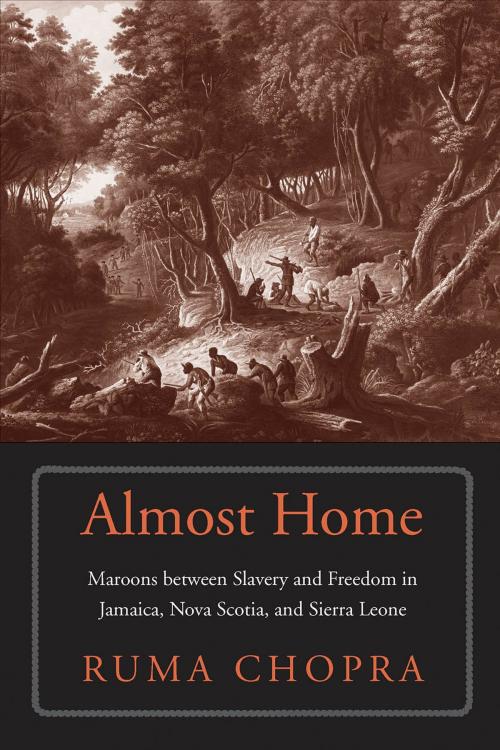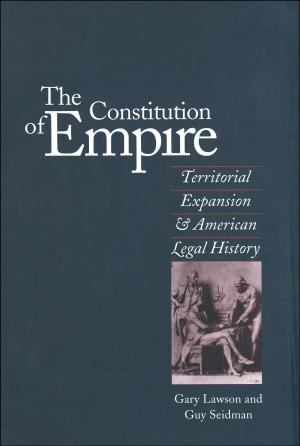Almost Home
Maroons between Slavery and Freedom in Jamaica, Nova Scotia, and Sierra Leone
Nonfiction, History, Americas, Caribbean & West Indies, Modern, 18th Century, Africa| Author: | Ruma Chopra | ISBN: | 9780300235227 |
| Publisher: | Yale University Press | Publication: | May 22, 2018 |
| Imprint: | Yale University Press | Language: | English |
| Author: | Ruma Chopra |
| ISBN: | 9780300235227 |
| Publisher: | Yale University Press |
| Publication: | May 22, 2018 |
| Imprint: | Yale University Press |
| Language: | English |
The unique story of a small community of escaped slaves who revolted against the British government yet still managed to maneuver and survive against all odds
After being exiled from their native Jamaica in 1795, the Trelawney Town Maroons endured in Nova Scotia and then in Sierra Leone. In this gripping narrative, Ruma Chopra demonstrates how the unlikely survival of this community of escaped slaves reveals the contradictions of slavery and the complexities of the British antislavery era.
While some Europeans sought to enlist the Maroons’ help in securing the institution of slavery and others viewed them as junior partners in the global fight to abolish it, the Maroons deftly negotiated their position to avoid subjugation and take advantage of their limited opportunities. Drawing on a vast array of primary source material, Chopra traces their journey and eventual transformation into refugees, empire builders—and sometimes even slave catchers and slave owners. Chopra’s compelling tale, encompassing three distinct regions of the British Atlantic, will be read by scholars across a range of fields.
The unique story of a small community of escaped slaves who revolted against the British government yet still managed to maneuver and survive against all odds
After being exiled from their native Jamaica in 1795, the Trelawney Town Maroons endured in Nova Scotia and then in Sierra Leone. In this gripping narrative, Ruma Chopra demonstrates how the unlikely survival of this community of escaped slaves reveals the contradictions of slavery and the complexities of the British antislavery era.
While some Europeans sought to enlist the Maroons’ help in securing the institution of slavery and others viewed them as junior partners in the global fight to abolish it, the Maroons deftly negotiated their position to avoid subjugation and take advantage of their limited opportunities. Drawing on a vast array of primary source material, Chopra traces their journey and eventual transformation into refugees, empire builders—and sometimes even slave catchers and slave owners. Chopra’s compelling tale, encompassing three distinct regions of the British Atlantic, will be read by scholars across a range of fields.















